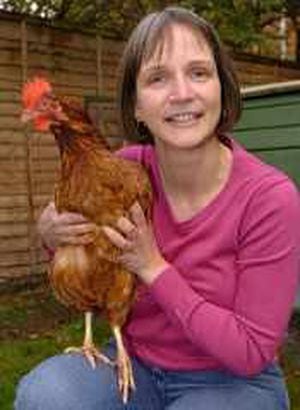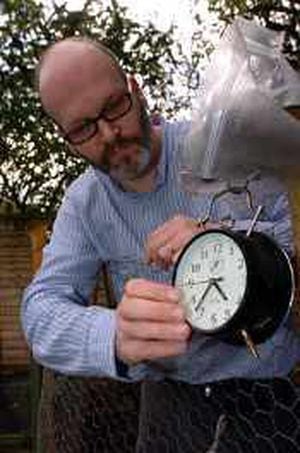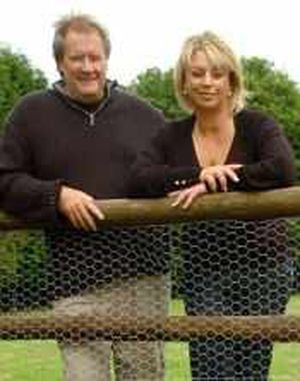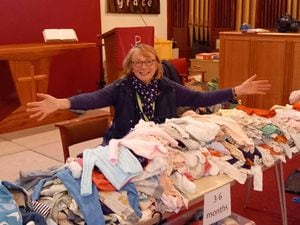Home farmers tap into Good Life
More people are becoming home farmers, keeping chickens, hens and pigs. The Shropshire Smallholders Group has members from all walks of life, from vicars with pigs to hippy-types who want to live a greener life.

It doesn't really matter what comes first - the chicken or the egg. The important thing, at least for a new breed of hobby farmers, is to get a chicken.
A recent survey found that more people are becoming so-called home farmers and turning their hands to animal husbandry, keeping chickens, hens and pigs, not for commercial use but for self- sufficiency.
Research carried out by B&Q shows that recession-hit Brits are going back to basics and embracing the Good Life more than ever and the trend of growing your own has moved on to keeping livestock. Sales of chicken coops have increased a quarter over the last year and even pig arcs are proving a top seller.
Industry estimates suggest that more than 750,000 households up and down the UK now keep chickens - mostly for eggs, but a growing number for meat.
With fast rising population figures and climate change concerns, there are fears over levels of future food production and the spectre of GM crops has again taken root.
Perhaps home farming, as advocated by Tom and Barbara on the television series The Good Life and more latterly by Hugh Fearnley-Whittingstall, is one solution.
The Shropshire Smallholders Group has members from all walks of life, from vicars with pigs to hippy-types who want to live a greener life.

He says most people go into it to sustain their own lifestyles and perhaps supplement their own incomes by selling produce.
"We have seen a number of new members. I've been involved in the group for six or seven years and there's a steady rise on top of current membership. There is quite an interest in it in the county."
Eric himself keeps alpaca as hobby animals, he says "to keep the grass down". But it also means that should he want a pair of nice warm socks knitting or a perhaps a snug cardie, he has the ways and means.
"I used to keep geese but the only person I supplied was a fox so I gave it up as a bad job," adds Eric.
It's teatime at the Dean household in Wellington and Fiona Dean and her husband Gary are tucking into a tea of eggs on toast, which tastes all the better since the eggs are freshly laid from their own hens, Theakston and Darkie, just up the garden, the bread is homemade too.

Sampling her freshly cooked over-easy eggs, Fiona's verdict speaks for itself.
"Delicious," she says. "They've got big, deep yellow yolks with such a lot of flavour compared to the ones you buy from shops. And it's so nice to just to go down the garden and get your eggs."
The neighbours benefit from Theakston's and Darkie's perfectly formed creations too. The children from next door are happy to come round and muck in with egg collection and are often furnished with produce.
Nick and Sam Warner, of Harley near Much Wenlock, have hens that produce a bounty of eggs. For the Warners, they are pets with a purpose.
"We have three pet hens that roam freely around the grounds," says Sam. "They lay and we eat their eggs and they also eat any scraps we have left over.

Graham Pocock, sales manager at NB Camber agricultural merchants in Harley, near Much Wenlock, says: "We are certainly seeing an increase in poultry feed sales, drinkers and feeders. Certainly poultry is the buzz word.
"If I've seen 12 people coming in and buying fencing for animals in the last two days that's a modest estimate.
"It is very, very buoyant."
The keeping of home pigs peaked during World War Two. An estimated 130,000 pigs, producing 10,000 tons of pig meat annually, were reared in more than 5,000 pig clubs on allotments and gardens. Similarly in 1943 about a quarter of all eggs eaten in Britain came from home coops.
The move towards back-garden animal husbandry means next year B&Q will be selling bee hives and goat sheds.
Katharine Poulter, director of seasonal at B&Q, says: "More and more customers are growing their own and looking to take that step further into keeping livestock too. We're trying to make it as easy as possible for people to have the good life and save money at the same time, without having to move to the country."
* There are strict rules on keeping animals for health and welfare reasons. Any budding pig keepers need to ensure they follow all Defra guidelines on pig keeping including obtaining a holding number from Defra. More details can be found at www.defra.gov.uk
By Ben Bentley





